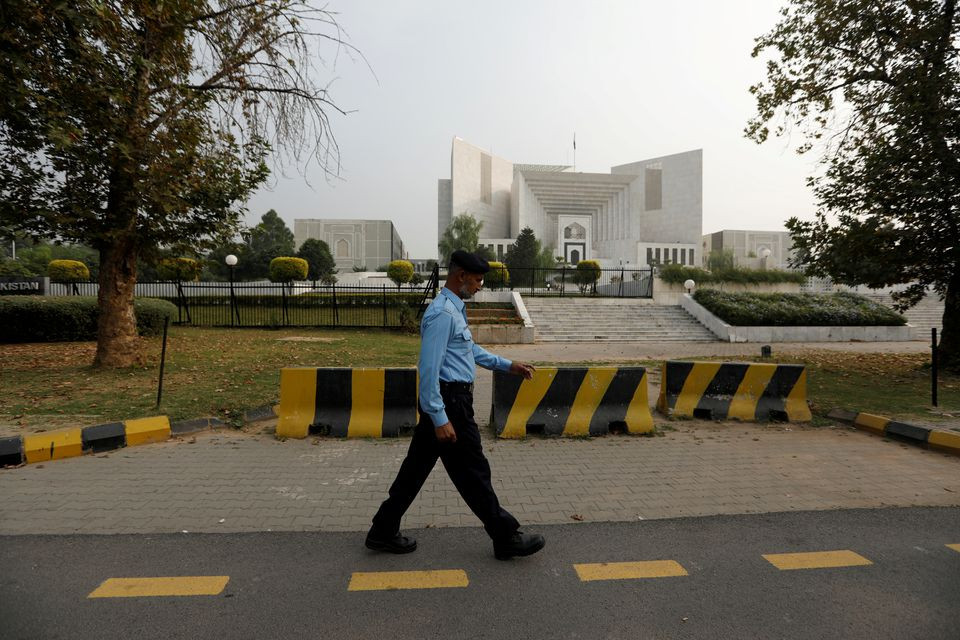
The Supreme Court has ruled that the very gravity and severity of the act alleged to have been committed by the accused, even though for the first time, may be sufficient to conclude that he is a “hardened, desperate or a dangerous criminal” and his bail could not be granted.
In a four-page judgement authored by Justice Syed Mansoor Ali Shah in a case wherein the accused chopped off the nose of his brother’s wife as well as of her alleged paramour, the bench noted that the very gravity and severity of the act alleged to have been committed by the accused, even though for the first time, may be sufficient to attract the fourth proviso to section 497(1) CrPC in the peculiar facts and circumstances of a case and may lead the court to form an opinion that the accused is a hardened, desperate or a dangerous criminal.
The accused is in imprisonment for two years. The petitioner sought bail on account of the delay in the trial.
The bench led by Justice Shah asked whether an accused person may be treated as a hardened, desperate or dangerous criminal, within the meaning of that expression as used in the fourth proviso to Section 497(1) CrPC, on the basis of the facts and circumstances of the case, when he applies for bail on the statutory ground of delay in conclusion of the trial, or there must necessarily be some previous criminal record of the accused to form such an opinion by the court about him.
The bench noted that section 497(1) thus does not apply to an accused who is a previously convicted offender for an offence punishable with death or imprisonment for life; or a hardened, desperate or dangerous criminal, in the opinion of the court; or an accused of an act of terrorism punishable with death or imprisonment for life.
The order said that the word “criminal” in the phrase “hardened, desperate or dangerous criminal” of the fourth proviso to Section 497(1) CrPC, as held by a five-member bench of the top court in Moundar v. State, is not to be construed in the technical sense for a person who has been adjudged guilty of a charge in a court of law.
It has rather been used in its ordinary sense for a person who violates the law of the land and is accused of committing a crime, it added.
"Further, the fourth proviso to section 497(1) CrPC deals with the previously convicted offenders separately. Therefore, in order to bring an accused within the compass of a hardened, desperate or dangerous criminal, it is not necessary to prove that he has a previous criminal record of conviction.
The bench concluded that it was thus obvious that the previous criminal record of convictions or of pendency of other criminal cases, though may be taken into consideration as supporting material, is not an exclusive deciding factor to form an opinion as to whether the accused is a hardened, desperate or dangerous criminal.
Such an opinion is to be formed by the court mainly on basis of the facts and circumstances of the case, borne out from the material available on record, wherein the bail is applied on the ground of delay in the conclusion of the trial by considering inter alia the nature of the offence involved, its effects on the victims or the society at large, the role attributed to the accused, the manner in which the offence was committed and the conduct of the accused.
"Needless to mention that the formation and recording of such opinion as to the character of the accused, like the opinion as to reasonable grounds for believing his involvement in the commission of the offence, is of tentative nature, and is thus open to re-examination and final determination on conclusion of the trial," the order read.
In the present case, the court noted that the nature and manner of the commission of the offence and the role attributed to the petitioner of cutting the nose of his brother’s wife and her alleged paramour are the circumstances which describe him as a person who can be harmful and dangerous for the society if released on bail and thus makes him to fall within the scope of the expression of “a hardened, desperate or dangerous criminal” as used in the fourth proviso to Section 497(1) CrPC.
“He is therefore not entitled to the benefit of the third proviso to Section 497(1) CrPC. Hence, we are not inclined to interfere in the impugned order. Leave to appeal is declined and the petition is dismissed."
The court directed the trial court to expedite the proceedings of the case and conclude the trial at the earliest.






















COMMENTS (1)
Comments are moderated and generally will be posted if they are on-topic and not abusive.
For more information, please see our Comments FAQ